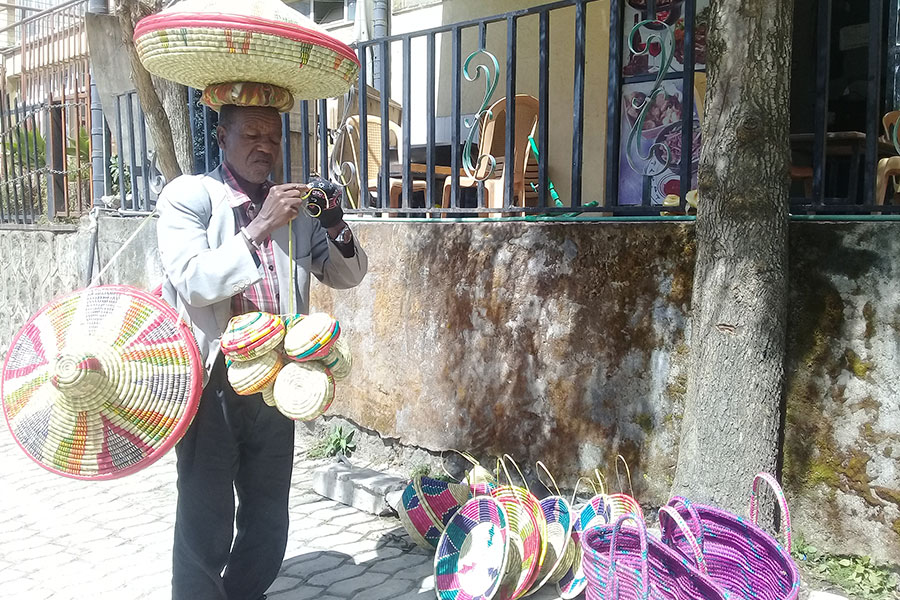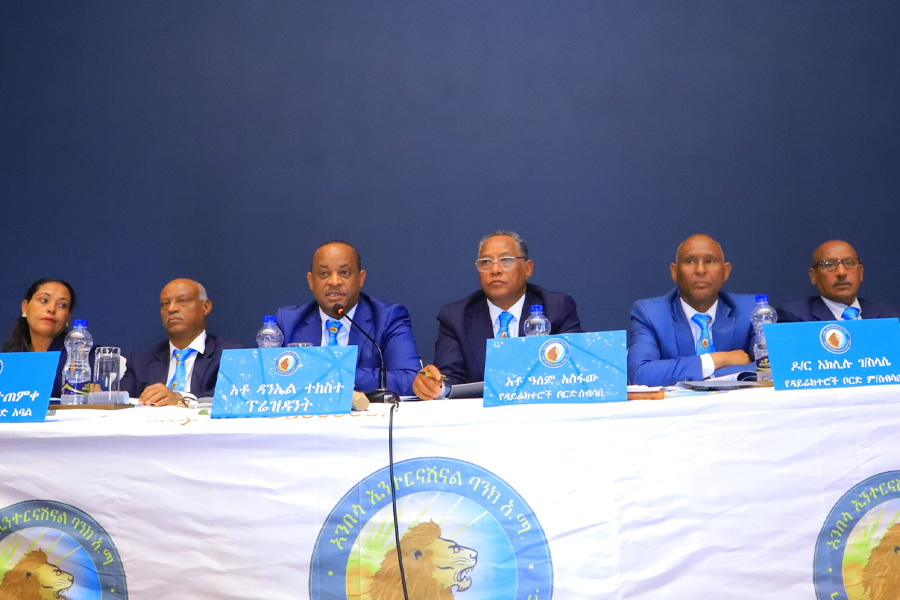
Radar | Aug 05,2023
In the unforgiving terrains of Wollo and Afar regions, where famine has etched its scars deep into the land and its people, Hailemariam Seifu's calling was forged.
It was here, amid the desperation and suffering of the 1970s, that he embarked on his life's defining work. As the emergency response team leader during some of Ethiopia's darkest days, Hailemariam's story is one of unwavering commitment to the country's most vulnerable, demonstrating human endurance and the power of dedication in the face of unimaginable adversity.
Born on September 28, 1935, in the Gursum area of the Harergie District, his early life was marked by modest beginnings. His life journey led him from Jigjiga to Jimma towns before he settled in Addis Abeba, where his contributions extended beyond his humanitarian work, notably aiding in the construction of Hawassa City, the capital of Sidama Regional State. Despite his eventual prominence, Hailemariam's roots remained grounded in the simple values of dedication and service.
In 1972, he began his career in crisis management as part of a committee tasked with assessing the famine that had taken hold in the arid regions. His role as a record keeper, while seemingly bureaucratic, placed him at the heart of the struggle for survival. The work was harrowing, not least because of the secrecy that shrouded these early efforts. As Ethiopia transitioned through the upheaval of a military regime that purged former officials, Hailemariam's resolve only strengthened. He emerged as a founding member of the Relief & Rehabilitation Commission (RRC), the body established to coordinate the influx of international aid in response to the famine's impact.
For 17 years, Hailemariam led the emergency response desk of the RRC, a tenure that spanned some of Ethiopia's most challenging periods, including the devastating famine of the mid-1980s that ravaged Tigray, Amhara, and parts of Benishangul Gumuz.
His work was tested further by the coinciding civil war, complicating relief efforts with tense political and security conditions. The response was even more dire. Affected areas were scenes of longstanding anti-government rebellions, which created precarious security conditions. Hailemariam had to deal with political decisions along with the logistics and re-settlement of the famine-stricken population. With the government access limited, aid had to be delivered through airdrops.
Despite these obstacles, Hailemariam's approach to crisis management — marked by meticulous record-keeping, swift decision-making, and an unwavering work ethic — earned him respect and recognition, both domestically and internationally. Fasika Sidelel, who was in the driver's seat of the economic wheel at the time, recalled a USAID report from the time praised the Commission's efforts as an "excellent effort," a tribute to Hailemariam's front-line oversight.
Colleagues like Shibeshi Lemma, public relations head of the commission at the time, spoke of him with reverence, recalling his dedication to duty, even at great personal sacrifice. Discipline, time management, and a tireless journey to the countryside with treacherous roads that were underdeveloped were not things that anyone could do.
“It required selflessness," said Shibeshi. "Hailemariam did it.”
His commitment extended beyond the professional realm; he was a father of seven. His wife took on the primary responsibility for their upbringing, recognising the broader call to service that defined her husband's life. Holidays were particularly tough as Hailemariam was always on duty, with his car always parked in reverse, standby to leave at any moment. Their son, Yohannes Hailemariam, says they understood that their father was given to the country, not just the family.
He recalled the moments of connection and lessons learned during road trips across Ethiopia, moments that cemented the blend of duty and family that characterised his father's life. He recalled conversations and driving lessons they would engage in, along with his younger brother.
“The trips were one of our bonding moments,” he said.
Beyond the public sphere, Hailemariam was a man of deep personal interests and talents.
His love for painting religious figures and his contributions to the construction of St. Uriel Church on Haile Gebresellasie St., spoke to his faith and artistic sensibility. He found solace in writing, both in the form of poetry and in his book, "Yetidfia Zemenat," a reflective work that offered insights into his experiences and the emotional toll of his work. The story of "That Kid," a child he wished to help but ultimately lost track of, reveals the personal regrets that haunted him, despite a career defined by relentless service to others.
“It's his way of getting relief from a stressful environment,” said Yohannes.
Hailemariam's final years were marked by a sense of unfulfilled acknowledgement, particularly as the transition under the EPRDF government led to his and numerous colleagues' unceremonious departure from the RRC, then led by Simon Mechale. However, the lack of formal recognition did little to diminish the esteem in which he was held by those who knew the depth of his contributions.
"I’ve never done anything that will make you ashamed," he would tell his family in the months before his passing on January 28, 2024, a sentiment that encapsulated his legacy. "You’ll walk tall and proud."
Hailemariam is survived by seven children, 10 grandchildren and a great-grandchild.
PUBLISHED ON
Feb 10,2024 [ VOL
24 , NO
1241]

Radar | Aug 05,2023

Radar | Aug 25,2024

Radar | Aug 13,2022

Radar | Jan 16,2024

Commentaries | Mar 25,2023

Advertorials | May 29,2023

Viewpoints | Mar 30,2019

Radar | Jan 01,2023

Commentaries | Jul 15,2023

Radar | Dec 08,2024

Dec 22 , 2024 . By TIZITA SHEWAFERAW
Charged with transforming colossal state-owned enterprises into modern and competitiv...

Aug 18 , 2024 . By AKSAH ITALO
Although predictable Yonas Zerihun's job in the ride-hailing service is not immune to...

Jul 28 , 2024 . By TIZITA SHEWAFERAW
Unhabitual, perhaps too many, Samuel Gebreyohannes, 38, used to occasionally enjoy a couple of beers at breakfast. However, he recently swit...

Jul 13 , 2024 . By AKSAH ITALO
Investors who rely on tractors, trucks, and field vehicles for commuting, transporting commodities, and f...

Oct 18 , 2025
The political establishment, notably the ruling party and its top brass, has become p...

Oct 11 , 2025
Ladislas Farago, a roving Associated Press (AP) correspondent, arrived in Ethiopia in...

Oct 4 , 2025
Eyob Tekalegn (PhD) had been in the Governor's chair for only weeks when, on Septembe...

Sep 27 , 2025
Four years into an experiment with “shock therapy” in education, the national moo...